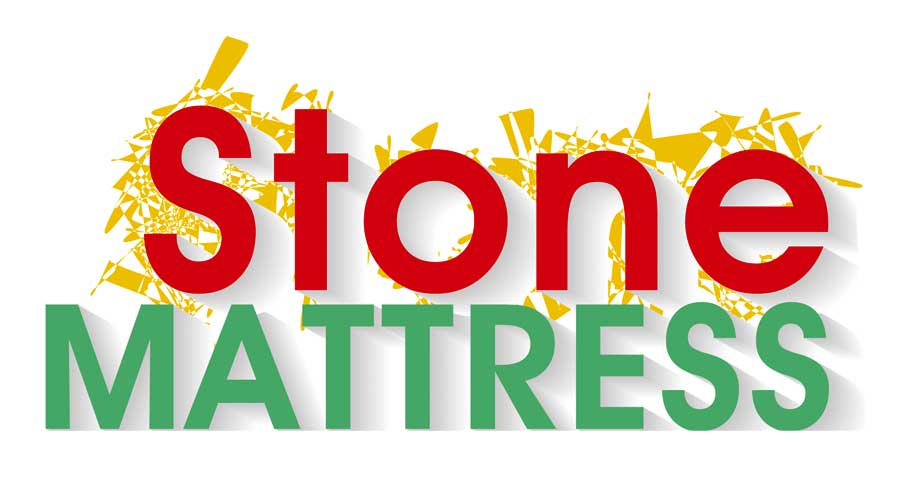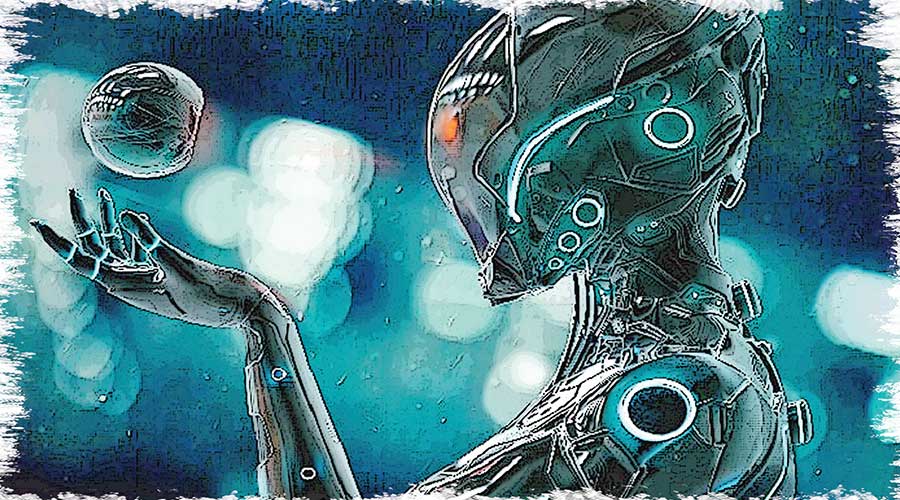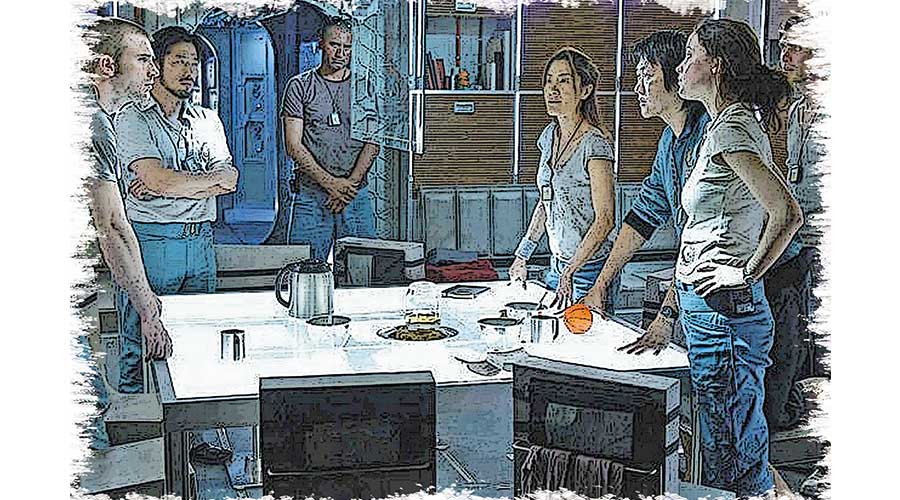Stone Mattress
By Margaret Atwood

If there are any tags unturned or any life jackets left in the bags, the staff will know that someone is still ashore.
They do not want to be left behind, do they? And now a few housekeeping details.
They will find laundry bags in their cabins. Bills will be charged to their accounts, and tips will be settled at the end.The ship runs on an open-door policy, to facilitate the work of the cleaning staff, but of course they can lock their rooms if they wish. There is a lost-and-found at Reception. All clear? Good.
The second speaker is the archeologist, who, to Verna, looks about twelve. They will be visiting sites of many kinds, she says, including Independence 1, Dorset, and Thule, but they must never, never take anything. No artifacts, and especially no bones. Those bones might be human, and they must be very careful not to disturb them. But even animal bones are an important source of scarce calcium for ravens and lemmings and foxes and, well, the entire food chain, because the Arctic recycles everything. All clear? Good.
Now, says the third speaker, a fashionably bald individual who looks like a personal trainer, a word about the guns. Guns are essential, because polar bears are fearless. But the staff will always fire into the air first, to scare the bear away. Shooting a bear is a last resort, but bears can be dangerous, and the safety of passengers is the first priority. There is no need to fear the guns: the bullets will be taken out during the Zodiac trips to and from shore, and it will not be possible for anyone to get shot. All clear? Good.
Clearly a gun accident won’t do, Verna thinks. No passenger is going to get near those guns.
After lunch, there’s a lecture on walruses. There are rumors of rogue walruses that prey on seals, puncturing them with their tusks, then sucking out the fat with their powerful mouths. The women on either side of Verna are knitting. One of them says, “Liposuction.” The other laughs.
Once the talks are over, Verna goes out on deck. The sky is clear, with a flight of lenticular clouds hovering in it like spaceships; the air is warm; the sea is aqua. There’s a classic iceberg on the port side, with a center so blue it looks dyed, and ahead of them is a mirage—a fata morgana, towering like an ice castle on the horizon, completely real except for the faint shimmering at its edges. Sailors have been lured to their deaths by those; they’ve drawn mountains on maps where no mountains were.
“Beautiful, isn’t it?” Bob says, materializing at her side. “How about that bottle of wine tonight?”
“I spy with my little eye something black and dark.”

“Stunning,” Verna says, smiling. “Perhaps not tonight – I promised some of the girls.” True enough she’s made a date with the knitting women.
“Maybe tomorrow?” Bob grins, and shares the fact that he has a single cabin: “No. 222, like the painkiller,” he quips, and comfortably amidships. “Hardly any rock and roll at all,” he adds. Verna says that she, too, has a single: worth the extra expense, because that way you can really relax. She draws out “relax” until it sounds like a voluptuous writhe on satin sheets.
Glancing at the tag board while strolling around the ship after dinner, Verna notes Bob’s tag – close enough to her own. Then she buys a pair of cheap gloves in the gift shop. She’s read a lot of crime novels.
A wizened, elflike man at Verna’s lunchtime table grumbles that he hopes they’ll be seeing something more exciting than rocks. He’s one of the other Bobs: Verna’s been taking an inventory. An extra Bob may come in handy. “I’m looking forward to them,” she says. “The stone mattresses.” She gives the word “mattress” the tiniest hint of suggestiveness, and gets an approving twinkle out of Bob the Second. Really, they’re never too old to flirt.
Out on deck after coffee, she surveys the approaching land through her binoculars. It’s autumn here: the leaves on the miniature trees that snake along the ground like vines are red and orange and yellow and purple, with rock surging out of them in waves and folds. There’s a ridge, a higher ridge, then a higher one. It’s on the second ridge that the best stromatolites are to be found, the geologist has told them.
Will someone who has slipped behind the third ridge be visible from the second one? Verna doesn’t think so.
Now they’re all stuffed into their waterproof pants and their rubber boots; now they’re being zipped and buckled into their life jackets like outsized kindergarten kids; now they’re turning their tags from green to red; now they’re edging down the gangway and being whisked into the black inflatable Zodiacs. Bob has made it into Verna’s Zodiac. He lifts his camera, snaps her picture.
Verna’s heart is beating more rapidly. If he recognises me spontaneously, I won’t kill him, she thinks. If I tell him who I am and he recognises me and then apologises, I still won’t kill him. That’s two more escape chances than he gave her. It will mean forgoing the advantage of surprise, a move that could be hazardous – Bob is much bigger than she is – but she wishes to be more than fair.
They’ve landed and have shed their life jackets and rubber footwear and are lacing up their hiking boots. Verna strolls closer to Bob, notes that he hasn’t bothered with the rubber boots. He’s wearing a red baseball cap; as she watches, he turns it backward.
Now they’re all scattering. Some stay by the shore; some move up to the first ridge. The geologist is standing there with his hammer, a twittering cluster already gathered around him. He’s in full lecture mode: they will please not take any of the stromatolites, but the ship has a sampling permit, so if anyone finds a particularly choice fragment, especially a cross section, check with him first and they can put it on the rock table he’ll set up on board, where everyone can see it. Here are some examples, for those who may not want to tackle the second ridge…
And here’s one shattered into four, like a Dutch cheese sliced into wedges. Verna picks up one of the quarters, examines the layers, each year black, gray, black, gray, black, and at the bottom the featureless core. The piece is heavy, and sharp at the edges. Verna lifts it into her backpack.
Here comes Bob as if on cue, lumbering slowly as a zombie up the hill toward her. He’s taken off his outer jacket, tucked it under his backpack straps. He’s out of breath. She has a moment of compunction: he’s over the hill; frailty is gaining on him. Shouldn’t she let bygones be bygones? Boys will be boys. Aren’t they all just hormone puppets at that age? Why should any human being be judged by something that was done in another time, so long ago it might be centuries?
A raven fly overhead, circles around. Can it tell? Is it waiting? She looks down through its eyes, sees an old woman because, face it, she is an old woman now – on the verge of murdering an even older man because of an anger already fading into the distance of used-up time. It’s paltry. It’s vicious. It’s normal. It’s what happens in life.
“Isn’t it?” Verna says. She moves toward the far side of the second ridge. “Maybe there’s something better over there. But weren’t we told not to go that far? Out of sight?”
Bob gives a rules-are-for-peasants laugh. “We’re paying for this,” he says. He actually takes the lead, not up the third ridge but around behind it. Out of sight is where he wants to be.
The gun bearer on the second ridge is yelling at some people straying off to the left. He has his back turned. A few more steps and Verna glances over her shoulder: she can’t see anyone, which means that no one can see her. They squelch over a patch of boggy ground. She takes her thin gloves out of her pocket, slips them on. Now they’re at the far side of the third ridge, at the sloping base.
“Come over here,” Bob says, patting the rock. His backpack is beside him. “I brought us a few drinks.” All around him is a tattered gauze of black lichen.
“Terrific,” Verna says. She sits down, unzips her backpack. “Look,” she says. “I found a perfect specimen.” She turns, positioning the stromatolite between them, supporting it with both hands. She takes a breath. “I think we’ve known each other before,” she says. “I’m Verna Pritchard. From high school.”
Bob doesn’t miss a beat. “I thought there was something familiar about you,” he says. He’s actually smirking.
She remembers that smirk. She has a vivid picture of Bob capering triumphantly in the snow, sniggering like a ten-year-old. Herself wrecked and crumpled.

She knows better than to swing widely. She brings the stromatolite up hard, a short sharp jab right underneath Bob’s lower jaw. There’s a crunch, the only sound. His head snaps back. Now he’s sprawled on the rock. She holds the stromatolite over his forehead, lets it drop. Again. Once again. There. That seems to have done it.
Bob looks ridiculous, with his eyes open and fixed and his forehead mashed in and blood running down both sides of his face. “You’re a mess,” she says. He looks laughable, so she laughs. As she suspected, the front teeth are implants.
She finds the young geologist – he’s still on the second ridge, along with his coterie of admirers – and produces the stromatolite.
“May I take it back to the ship?” she asks sweetly. “For the rock table?”
“Fantastic sample!” he says.
Travellers are making their way shoreward, back to the Zodiacs. When she reaches the bags with the life jackets, Verna fumbles with her shoelaces until all eyes are elsewhere and she can cram an extra life jacket into her backpack. The pack is a lot bulkier than it was when she left the ship, but it would be odd if anyone noticed that.
Once up the gangway, she diddles around with her pack until everyone else has moved past the tag board, then flips Bob’s tag from red to green. And her own tag, too, of course.
On the way to her cabin she waits till the corridor is clear, then slips through Bob’s unlocked door. The room key is on the dresser; she leaves it there. She hangs up the life jacket and Bob’s waterproof and baseball cap, runs some water in the sink, messes up a towel. Then she goes to her own cabin along the still-empty corridor, takes off her gloves, washes them, and hangs them up to dry. She’s broken a nail, worse luck, but she can repair that.
She checks her face: a touch of sunburn, but nothing serious. For dinner, she dresses in pink and makes an effort to flirt with Bob the Second, who gamely returns her serves but is surely too decrepit to be a serious prospect. Just as well – her adrenaline level is plummeting. If there are northern lights, they’ve been told, there will be an announcement, but Verna doesn’t intend to get up for them.
Meanwhile, the stromatolite will sit on the geological samples table and will be picked up and examined and discussed, acquiring many fingerprints. At the end of the trip it will be jettisoned. The Resolute II will travel for fourteen days; it will stop for shore visits eighteen times. It will sail past ice caps and sheer cliffs, and mountains of gold and copper and ebony black and silver gray; it will glide through pack ice; it will anchor off long, implacable beaches and explore fjords gouged by glaciers over millions of years. In the midst of such rigorous and demanding splendor, who will remember Bob?
There will be a moment of truth at the end of the voyage, when Bob will not appear to pay his bill and pick up his passport; nor will he pack his bags. There will be a flurry of concern, followed by a staff meeting – behind closed doors, so as not to alarm the passengers. Ultimately, there will be a news item: Bob, tragically, must have fallen off the ship on the last night of the voyage while leaning over to get a better camera angle on the northern lights. No other explanation is possible.
Meanwhile, the passengers will have scattered to the winds, Verna among them.
She ought to care more about that – she ought to find it an exciting challenge – but right now she just feels tired and somewhat empty.








































